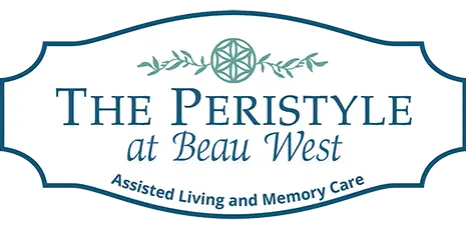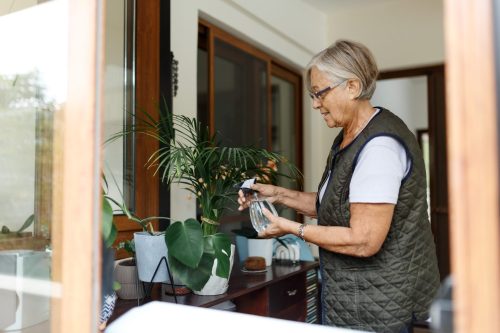As functioning adults, we continuously perform small tasks throughout the day to maintain our independence, such as brushing our teeth, going to the bathroom, eating breakfast, etc. These tasks are known as activities of daily living (ADLs) and are vital to our autonomy. As we grow older, ADL’s become more challenging due to age-related disabilities, such as physical limitations and memory loss. The guide below details how to manage ADLs and what steps you should take to maximize your elderly loved one’s quality of life. The Peristyle at Beau West is an all-memory care community located in Mandeville, Louisiana. Our team of expert healthcare professional have decades of experience helping seniors perform activities of daily living. Please contact us today to learn more about how we can help your elderly loved one experience a better quality of life in their golden years. You can also learn more about Beau West on our Family Resources page.
Different Types of Activities of Daily Living
ADLs are categorized into two categories: basic and advanced. Basic ADLs are simple tasks we learn as children essential to independence, such as dressing and toileting. Instrumental Activities of Daily Living (iADLs) are more complex tasks we learn as adults, such as managing finances, taking medications, and cleaning and cooking. Both are equally important to maintaining longevity and independence.
Basic ADLs
Hygiene: The ability to bathe, maintain personal hygiene, shave, brush hair, etc.
Dressing: Picking out appropriate attire for the weather/occasion, and get dressed.
Toileting and Continence: How much control an elderly person has over their bowels and bladder and how regular their bodily movements are. Can they safely use the bathroom on their own?
Eating: On a basic level, how capable an elderly individual is of feeding themself, which means the process of bringing food and liquids to their mouth, swallowing, and chewing.
Physical Mobility: How well an elderly individual can move around from one daily activity to another without help. This includes walking, using a mobility assistance device effectively, and getting into or out of beds and chairs.

Instrumental Activities of Daily Living (IADL)
Cleaning and Housekeeping: Sweeping, vacuuming, washing dishes, dusting, etc.
Laundry: The ability to wash and dry clothes, fold them, and put them away.
Managing Medications: The cognitive capacity to take medication, track its dosages, and schedule prescription refills.
Meal Preparation: Includes cooking and setting out food during breakfast, lunch, and dinner.
Shopping: Purchasing basic necessities such as groceries, toiletries, and small household items. Also, the ability to carry purchased items to and from the car and put them away when getting home.
Transportation: The ability to take public transport, operate a vehicle, etc.
Using Electronics and Household Devices: Being able to use telephones, the television, computer, thermostat, etc.
How an ADL Assessment Works
The ability to perform activities of daily living is directly related to one’s mental health and overall wellbeing. More specifically, how well or poorly ADLs are being performed is one of the fundamental indicators of physical and cognitive decline in seniors. Ultimately, this ability should determine whether a senior can still live independently or if assisted living is required. A few key questions to ask in making decisions about a senior’s ability to perform activities of daily living include:
- Have they suffered an increase in driving accidents, near accidents, or erratic driving?
- Have they recently committed notable financial lapses outside the range of their normal behavior? These could include failure to pay regular bills.
- Have they recently suffered a physical trauma that could suddenly change their ability to perform certain types of ADL?
- Are they acting and speaking in unusual ways or presenting signs of repeating memory lapses?
- Have they been showing increasing signs of personal or household neglect recently?
This basic checklist can be a valuable tool for more precisely and less subjectively monitoring how an elderly loved one is progressing before speaking to a healthcare professional.
How Peristyle Beau West Can Help
The amenities, staff, and services at communities such as The Peristyle at Beau West are an ideal choice for safe, responsible, and life-enriching senior care in a comfortably luxurious setting. If your elderly loved one is showing signs of memory loss and the inability to perform ADLs, don’t hesitate to contact us today to tour our wonderful assisted living community in Mandeville, Louisiana. We offer exceptional amenities and services to ensure your senior loved one feels at home and cared for.
We look forward to meeting you and your family.





